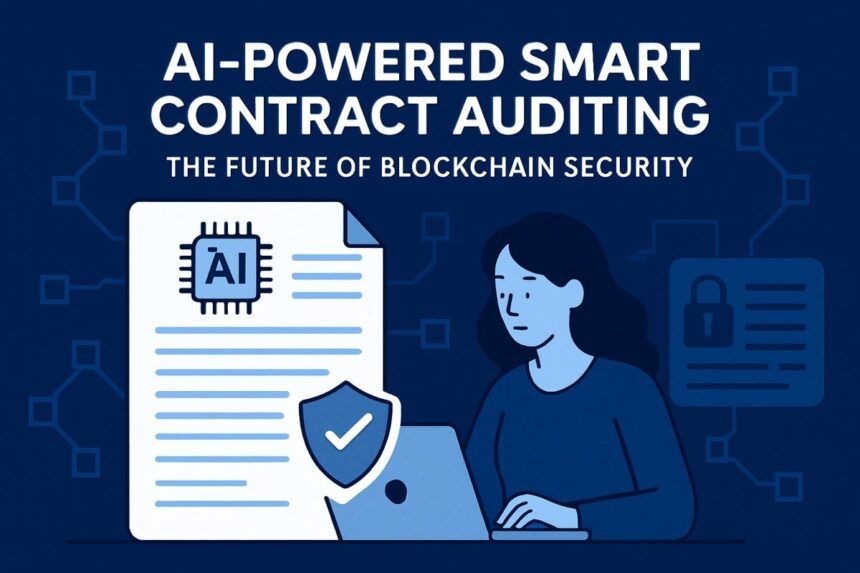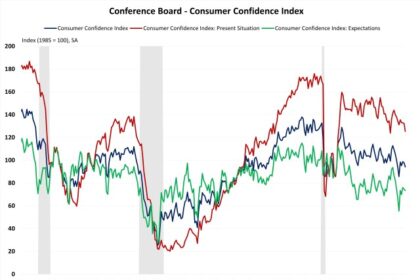Blockchain technology has introduced a new era of digital trust, transparency, and decentralized operations. At the heart of this innovation are smart contracts — self-executing agreements that automate transactions and processes without the need for intermediaries. While smart contracts bring efficiency and reliability, they also present unique security challenges. Vulnerabilities in code can lead to significant financial losses and reputational damage. As blockchain adoption grows, the need for robust smart contract auditing becomes more critical than ever.
This blog explores how artificial intelligence (AI) is reshaping the way smart contracts are audited, making the process more efficient, accurate, and accessible for businesses. Whether you are a startup, an enterprise, or a Smart Contract Development Company, understanding the benefits and workings of AI-powered auditing can help you make informed decisions about blockchain security.
What Are Smart Contracts?
Smart contracts are digital protocols that automatically execute predefined actions when certain conditions are met. They are widely used in various blockchain applications, including decentralized finance (DeFi), supply chain management, gaming, and more. By removing the need for manual intervention, smart contracts reduce costs and increase transaction speed.
Common Vulnerabilities in Smart Contracts
Despite their advantages, smart contracts are not immune to risks. Some of the most common vulnerabilities include:
- Reentrancy Attacks: When a contract calls an external contract, which then calls back into the original contract before the first execution is complete.
- Integer Overflow/Underflow: Errors that occur when a calculation exceeds the storage capacity of a variable.
- Timestamp Dependence: Relying on block timestamps for critical logic, which can be manipulated by miners.
- Access Control Issues: Improper implementation of permissions can allow unauthorized actions.
- Front-Running: Attackers exploiting transaction ordering to gain an unfair advantage.
The Importance of Auditing
Auditing is the process of reviewing and analyzing smart contract code to identify and fix vulnerabilities before deployment. A thorough audit helps prevent exploits, protects funds, and builds trust among users and stakeholders.
How AI Is Changing the Game
Artificial intelligence brings a new dimension to smart contract auditing by automating complex analysis and learning from vast datasets. AI-powered tools can:
- Analyze large volumes of code quickly.
- Detect patterns and anomalies that may indicate vulnerabilities.
- Continuously improve by learning from new exploits and audit reports.
Key Technologies Behind AI-Powered Auditing
- Machine Learning (ML): Algorithms trained on historical data to recognize security flaws.
- Natural Language Processing (NLP): Helps interpret code comments, documentation, and logic.
- Pattern Recognition: Identifies recurring code structures associated with vulnerabilities.
Advantages of AI-Powered Auditing
- Speed: AI can review thousands of lines of code in minutes.
- Consistency: Reduces the risk of human oversight.
- Adaptability: Learns from new threats and adapts detection strategies.
Data Collection and Training
AI systems are trained on extensive datasets containing examples of vulnerable and secure smart contracts. This training enables the AI to recognize subtle indicators of risk.
Code Analysis
The AI examines smart contract code using techniques such as:
- Static Analysis: Scanning code without executing it to find vulnerabilities.
- Dynamic Analysis: Simulating contract execution to observe behavior under different scenarios.
Vulnerability Detection
AI models flag potential issues, categorize them by severity, and suggest remediation steps. The findings are then reviewed by human auditors for validation.
Continuous Learning
As new vulnerabilities are discovered and patched, the AI updates its knowledge base, improving its detection capabilities over time.
DeFi Platforms
Decentralized finance projects handle millions of dollars in user funds. AI-powered auditing has helped identify and fix vulnerabilities in protocols such as lending platforms, decentralized exchanges, and stablecoins, reducing the risk of hacks and exploits.
NFT Marketplaces
Non-fungible token (NFT) platforms use smart contracts for minting, trading, and royalties. AI-driven audits have uncovered issues related to ownership verification and royalty payments, ensuring fair transactions.
Supply Chain Solutions
Blockchain-based supply chain systems rely on smart contracts for tracking goods and payments. AI auditing has been used to validate contract logic, preventing fraud and disputes.
Faster Time to Market
AI-powered auditing shortens the audit cycle, allowing businesses to deploy smart contracts more quickly without compromising on security.
Cost Efficiency
By automating much of the analysis, AI reduces the need for extensive manual labor, making audits more affordable for startups and enterprises alike.
Improved Accuracy
AI tools can detect subtle vulnerabilities that might be missed during manual review, providing a higher level of assurance.
Ongoing Monitoring
Some AI solutions offer continuous monitoring, alerting businesses to new threats as they emerge and helping maintain contract integrity over time.
False Positives and Negatives
While AI improves detection, it is not infallible. Some issues may be flagged incorrectly, while others may go unnoticed. Human oversight remains essential.
Data Privacy
Training AI models requires access to large datasets, which may include sensitive or proprietary code. Protecting this data is a key concern.
Evolving Threats
As attack methods evolve, AI models must be regularly updated to stay effective. Ongoing investment in research and development is necessary.
Integration with Existing Workflows
Businesses must adapt their development and audit processes to incorporate AI tools effectively. This may require training and change management.
False Positives and Negatives
While AI improves detection, it is not infallible. Some issues may be flagged incorrectly, while others may go unnoticed. Human oversight remains essential.
Data Privacy
Training AI models requires access to large datasets, which may include sensitive or proprietary code. Protecting this data is a key concern.
Evolving Threats
As attack methods evolve, AI models must be regularly updated to stay effective. Ongoing investment in research and development is necessary.
Integration with Existing Workflows
Businesses must adapt their development and audit processes to incorporate AI tools effectively. This may require training and change management.
- Reputation: Look for providers with a proven track record in smart contract security.
- Technology: Assess the AI capabilities and the types of vulnerabilities the tool can detect.
- Support: Ensure that the provider offers expert support for interpreting results and implementing fixes.
- Integration: Choose solutions that fit seamlessly with your existing development tools and workflows.
- What types of vulnerabilities does your AI detect?
- How do you handle false positives?
- What is the process for updating your AI models?
- Can your tool integrate with our development pipeline?
- What support do you offer during and after the audit?
- Define Security Requirements: Identify the level of security needed based on your project’s risk profile.
- Select an Auditing Partner: Choose a provider with expertise in AI-powered smart contract auditing.
- Prepare Your Code: Ensure your smart contracts are well-documented and ready for review.
- Conduct the Audit: Submit your code for analysis and collaborate with the audit team to address findings.
- Review and Fix Issues: Work with developers to resolve vulnerabilities identified by the AI.
- Deploy and Monitor: Launch your smart contract and monitor it using AI tools for ongoing security.
Can AI replace human auditors?
AI is a powerful tool that can automate and improve many aspects of smart contract auditing. However, human expertise is still needed to interpret complex issues, make judgment calls, and provide context-specific recommendations.
Are AI-powered audits suitable for all smart contracts?
Most AI tools are designed to handle a wide range of smart contracts, but highly specialized or novel contracts may require additional manual review.
How often should smart contracts be audited?
It is recommended to audit smart contracts before deployment and after any significant updates. Continuous monitoring can also help detect new vulnerabilities as they arise.
AI-powered smart contract auditing represents a significant step forward in blockchain security. By combining speed, accuracy, and adaptability, AI tools help businesses identify and address vulnerabilities more effectively. As blockchain adoption continues to grow, investing in advanced auditing solutions will be essential for protecting assets and maintaining trust.
If you are looking for expert guidance and reliable solutions, consider partnering with a trusted Smart Contract Development company. codezeros offers comprehensive smart contract development and auditing services to help you build secure and efficient blockchain applications.










